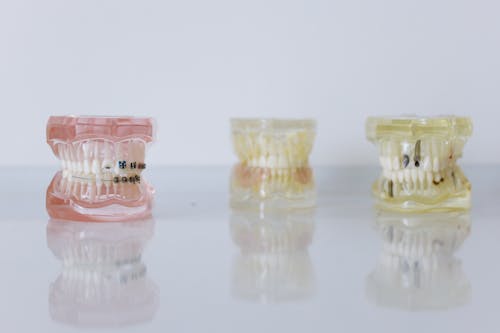Understanding the True Cost of Dental Implants: Is It Worth the Investment?
Dental implants are becoming an increasingly popular choice for tooth replacement, but the cost associated with these procedures can be quite high. This article delves into the various factors influencing the cost of dental implants, including materials, location, and overall dental health. You'll learn whether the investment is truly worth it in the long run, factoring in maintenance and the improvement in quality of life that comes with a strong smile.
Factors Influencing the Cost of Dental Implants
The cost of dental implants can vary significantly based on several key factors. First and foremost, the materials used play a critical role. Titanium implants, known for their strength and biocompatibility, tend to be more expensive than alternatives. Additionally, the location of the dental clinic can drastically affect pricing. Urban areas often have higher operational costs, which can translate to increased prices for patients. Furthermore, individual dental health can also impact the overall cost of dental implants; those requiring bone grafts or extensive preparatory work will face higher fees. Lastly, the skill and experience of the dental professional can influence costs, as highly reputable practitioners may command premium rates. Thus, understanding these factors is essential when considering the cost of dental implants.
The Financial Breakdown: What to Expect
When evaluating the cost of dental implants, patients should expect a detailed breakdown of expenses. Typically, this includes the initial consultation fee, imaging tests (like X-rays), the cost of the implant itself, and the surgical procedure. Additional costs may arise from anesthesia and post-operative care, including follow-up visits. For many, the total cost can reach several thousand dollars, making it essential to discuss payment plans with the dental office. Insurance coverage, if available, may offset some costs, but many plans do not offer comprehensive dental implant coverage. Therefore, it’s crucial to inquire about financial options to help manage the financial burden associated with the cost of dental implants.
The Long-Term Value of Investing in Dental Implants
While the upfront cost of dental implants is substantial, it is important to assess their long-term value. Many patients find that dental implants provide a durable and natural-looking solution for tooth loss. Unlike traditional dentures, which may need regular replacement, dental implants can last a lifetime with proper care. This longevity often results in lower long-term costs. Furthermore, the improved functionality and aesthetic appearance can significantly enhance an individual’s quality of life, impacting self-esteem and social interactions positively. Thus, while the initial cost of dental implants may seem daunting, the potential savings and benefits over time can make them a worthwhile investment.
Alternatives to Dental Implants: Cost Considerations
For those hesitant about the cost of dental implants, alternatives exist, though they come with their own price tags and potential downsides. Dental bridges and dentures are commonly considered options but can involve more frequent replacements and possible adjustments over time. While these alternatives may initially appear less expensive, their longevity and efficacy may not match those of dental implants. Additionally, routine care and maintenance costs for alternatives can accumulate, leading to comparable expenses in the long run. Therefore, understanding the true cost of dental implants in context with available alternatives is vital for making an informed decision.
Conclusion: Weighing the Costs and Benefits
Choosing to pursue dental implants is both a financial and personal decision. The cost of dental implants is influenced by numerous factors, including material selection, the practitioner's expertise, and specific patient needs. By closely examining both immediate costs and long-term benefits, patients can better understand the choices available to them. Ultimately, dental implants offer a reliable, aesthetically pleasing, and functional solution for tooth replacement, making their higher costs worth considering for many individuals seeking effective restorative dentistry.
